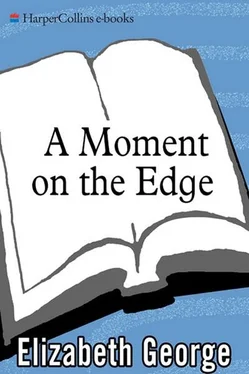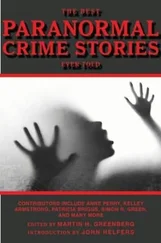What a crime does in a piece of literature is two-fold. First, it serves as a throughline for the story to follow: the crime must be investig-ated and solved within the twists and turns of the plot. But secondly and perhaps more importantly, the crime also acts as a skeleton for the body of the tale that the writer wishes to tell. On this skeleton, the writer can hang as much or as little as she likes. She can keep the skeleton down to the bones alone and tell a story that moves smoothly, concisely, and without deviation or decoration to its revelation and conclusion. Or she can hang upon the skeleton the muscles, tissues, veins, organs, and blood of such diverse elements of storytelling as theme, exploration of character, life and literary symbols, subplots, etc., as well as the specific crime-oriented story elements of clues, red herrings, suspense, and a list of time-honored motifs peculiar to mysteries: the hermetically sealed death chamber (or locked room), the most obvious place, the trail of false clues left by the real killer, the fixed idea, and on and on. Thus, her characters can march hand-in-hand in the direction of an ineluctable conclusion, or they can become sidetracked by the myriad possibilities offered to them through means of an expanded storyline and a more complicated structure.
Why, then, would a writer ever consider dabbling in anything else? There is no reason that I can see. For as long as a writer adheres to the notion that the only rule is there are no rules, the sky’s the limit within this field.
This still doesn’t answer the question about female writers’ attrac-tion to crime literature, and it is indeed a question I’ve been asked over and over again by journalists, with a rather tedious regularity.
The Golden Age of Mystery in Great Britain and the Common-wealth — which I would consider spanning the years from the twenties through the fifties — is dominated by women. Indeed, their names comprise a pantheon into whose company every modern writer aspires to join. Agatha Christie, Dorothy L. Sayers, Ngaio Marsh, Margery Allingham…It’s not terribly difficult to sort out why women writers throughout the twentieth century endeavored to join this distinguished company: once one woman made an inroad into an area of literature, other women were quick to follow. The fascination with crime writing on the part of females can thus be explained with ease: women chose to write crime stories because they were successful at it. Success on the part of one woman breeds the desire for success on the part of another.
In the United States, this also holds true. But the difference in the United States is that the Golden Age of Mystery is dominated by men and that women are Janet-come-latelies to it. When we think of the Golden Age in America, we think of Dashiell Hammett and Raymond Chandler, of first-person narratives with tough-guy private eyes who smoke, drink bourbon, live in seedy apartments, and dismissively refer to women as “dames.” They use guns and their fists, and they’ve got ’tude to spare. They’re loners, and they like it that way.
Breaking into this male-dominated world required guts and tenacity on the part of women writers. Some of them opted to write kinder, gentler mysteries in order to offer something more in keeping with the delicate sensibilities of the female readers they were hoping to attract. Others decided to barge right in and join the men, creating female private eyes who were as hard-bitten as the men they sought to replace. Sue Grafton and Sara Paretsky proved irrefutably that a female p.i. would be accepted by an audience of both men and women readers, and a score of other female writers began to follow in Grafton and Paretsky’s footsteps. Thus, the arena widened in the United States as well, offering women another outlet for their creative energies.
Creating crime fiction offers writers a vast landscape as broad and as varied as crime itself. Because there are no hard-and-fast rules and because those few rules that exist exist to be broken (witness the uproar over The Murder of Roger Ackroyd when it was first published in 1926), the writer can choose any setting on earth which she can then people with: teenagers as sleuths, children as sleuths, old ladies as sleuths, animals as sleuths, shut-ins and agoraphobics as sleuths, teachers as sleuths, doctors as sleuths, as-tronauts as sleuths, and on and on as far as the imagination can carry her. With this as a basic tenet of crime writing, the real question should be not why do so many women write crime stories? but why doesn’t everyone write crime stories?
This volume doesn’t attempt to answer that question. What it does, however, is present for your entertainment a century’s collection of crime and suspense stories by women. What you’ll notice about this collection is that it includes names closely associated with crime writing — Dorothy L. Sayers, Minette Walters, Sue Grafton, and others — but it also includes some names one doesn’t normally associate with crime writing at all: names like Nadine Gordimer and Joyce Carol Oates. I’ve tried to come up with as wide a range of female authors as possible because a wide range reflects my primary belief about crime writing and that is this: crime writing does not have to be considered genre writing. It is not confined to a few moderately talented practitioners. And most importantly, it is indeed something that can stand, will stand, and has already stood the test of time.
One of the greatest sources of irritation to me as a writer is the number of people who stubbornly consider crime writing a lesser form of literary endeavor. Throughout the years that I’ve written crime fiction, I’ve had numerous conversations with people that reflect this very strange point of view. One man at a writing conference told me that he was going to write crime fiction as practice and then, later on, he would write a “real novel.” (“Like making tacos until you can graduate to chocolate cake from scratch?” I asked him innocently.) A journalist in Germany once asked me what I thought of the fact that my novels weren’t reviewed in a highbrow newspaper that I had never heard of. (“Gosh. I don’t know. I guess that paper doesn’t have much impact on sales,” I told her.) Several times people have stood up during Q&A at the end of speeches I’ve given and asked me why “a writer like you doesn’t write serious novels.” (“I consider crime fiction serious,” I tell them.) But always there is this underlying belief on the part of some readers and some critics: crime fiction isn’t something that should be taken seriously.
This is an unfortunate point of view. While it’s true that some crime fiction is lowbrow, formulaic, and without much merit, the same can be said of anything else that’s published. Some books are good, some are indifferent, and some are downright bad. But the reality is that a great deal of crime fiction has done what mainstream
“literary” fiction only dreams of doing: it has successfully stood the test of time. For every Sir Arthur Conan Doyle, whose Sherlock Holmes still inspires devotion and enthusiasm over one hundred years after his creation, there are thousands of writers whose work of ostensible literature has faded into complete obscurity. Given the choice between being labeled a “literary” writer and disappearing ten years after I hang up my spurs or being labeled “only a crime writer” and having my stories and novels read one hundred years from now, I know which choice I would make and I can only assume any writer of sense would make the same one.
For my money, literature is whatever lasts. During his lifetime, no one would have accused William Shakespeare of writing great literature. He was a popular playwright who peopled his productions with characters who satisfied every possible level of education and experience in his audience. Charles Dickens wrote serials for the newspaper, penning them as quickly as he could in order to support his ever-burgeoning family. And the aforementioned Arthur Conan Doyle, a young ophthalmologist building a practice, wrote mysteries to while away the time as he waited for patients to show up in his surgery. None of these writers was worried about immortality. None of them wrote while wondering whether their work would be considered literature, commercial fiction, or trash. They were each concerned about telling a great story, telling it well, and placing it before an audience. The rest they placed — as wise men and women do — into the hands of time.
Читать дальше












